第48章 Chapter 11(1)
1852-1855
M.Joseph Milsand --His close Friendship with Mr.Browning;Mrs.Browning's Impression of him --New Edition of Mr.Browning's Poems --'Christmas Eve and Easter Day'--'Essay'on Shelley --Summer in London --Dante Gabriel Rossetti --Florence;secluded Life --Letters from Mr.and Mrs.Browning --'Colombe's Birthday'--Baths of Lucca --Mrs.Browning's Letters --Winter in Rome --Mr.and Mrs.Story --Mrs.Sartoris --Mrs.Fanny Kemble --Summer in London --Tennyson --Ruskin.
It was during this winter in Paris that Mr.Browning became acquainted with M.Joseph Milsand,the second Frenchman with whom he was to be united by ties of deep friendship and affection.
M.Milsand was at that time,and for long afterwards,a frequent contributor to the 'Revue des Deux Mondes';his range of subjects being enlarged by his,for a Frenchman,exceptional knowledge of English life,language,and literature.He wrote an article on Quakerism,which was much approved by Mr.William Forster,and a little volume on Ruskin called 'L'Esthetique Anglaise',which was published in the 'Bibliotheque de Philosophie Contemporaine'.Shortly before the arrival of Mr.and Mrs.Browning in Paris,he had accidentally seen an extract from 'Paracelsus'.
This struck him so much that he procured the two volumes of the works and 'Christmas Eve',and discussed the whole in the 'Revue'as the second part of an essay entitled 'La Poesie Anglaise depuis Byron'.
Mr.Browning saw the article,and was naturally touched at finding his poems the object of serious study in a foreign country,while still so little regarded in his own.It was no less natural that this should lead to a friendship which,the opening once given,would have grown up unassisted,at least on Mr.Browning's side;for M.Milsand united the qualities of a critical intellect with a tenderness,a loyalty,and a simplicity of nature seldom found in combination with them.
The introduction was brought about by the daughter of William Browning,Mrs.Jebb-Dyke,or more directly by Mr.and Mrs.Fraser Corkran,who were among the earliest friends of the Browning family in Paris.
M.Milsand was soon an 'habitue'of Mr.Browning's house,as somewhat later of that of his father and sister;and when,many years afterwards,Miss Browning had taken up her abode in England,he spent some weeks of the early summer in Warwick Crescent,whenever his home duties or personal occupations allowed him to do so.
Several times also the poet and his sister joined him at Saint-Aubin,the seaside village in Normandy which was his special resort,and where they enjoyed the good offices of Madame Milsand,a home-staying,genuine French wife and mother,well acquainted with the resources of its very primitive life.M.Milsand died,in 1886,of apoplexy,the consequence,I believe,of heart-disease brought on by excessive cold-bathing.The first reprint of 'Sordello',in 1863,had been,as is well known,dedicated to him.The 'Parleyings',published within a year of his death,were inscribed to his memory.
Mr.Browning's affection for him finds utterance in a few strong words which I shall have occasion to quote.An undated fragment concerning him from Mrs.Browning to her sister-in-law,points to a later date than the present,but may as well be inserted here.
'...I quite love M.Milsand for being interested in Penini.
What a perfect creature he is,to be sure!He always stands in the top place among our gods --Give him my cordial regards,always,mind....
He wants,I think --the only want of that noble nature --the sense of spiritual relation;and also he puts under his feet too much the worth of impulse and passion,in considering the powers of human nature.
For the rest,I don't know such a man.He has intellectual conscience --or say --the conscience of the intellect,in a higher degree than I ever saw in any man of any country --and this is no less Robert's belief than mine.
When we hear the brilliant talkers and noisy thinkers here and there and everywhere,we go back to Milsand with a real reverence.
Also,I never shall forget his delicacy to me personally,nor his tenderness of heart about my child....'
The criticism was inevitable from the point of view of Mrs.Browning's nature and experience;but I think she would have revoked part of it if she had known M.Milsand in later years.He would never have agreed with her as to the authority of 'impulse and passion',but I am sure he did not underrate their importance as factors in human life.
M.Milsand was one of the few readers of Browning with whom I have talked about him,who had studied his work from the beginning,and had realized the ambition of his first imaginative flights.
He was more perplexed by the poet's utterance in later years.
'Quel homme extraordinaire!'he once said to me;'son centre n'est pas au milieu.'The usual criticism would have been that,while his own centre was in the middle,he did not seek it in the middle for the things of which he wrote;but I remember that,at the moment in which the words were spoken,they impressed me as full of penetration.
Mr.Browning had so much confidence in M.Milsand's linguistic powers that he invariably sent him his proof-sheets for final revision,and was exceedingly pleased with such few corrections as his friend was able to suggest.
With the name of Milsand connects itself in the poet's life that of a younger,but very genuine friend of both,M.Gustave Dourlans:
a man of fine critical and intellectual powers,unfortunately neutralized by bad health.M.Dourlans also became a visitor at Warwick Crescent,and a frequent correspondent of Mr.or rather of Miss Browning.
He came from Paris once more,to witness the last sad scene in Westminster Abbey.